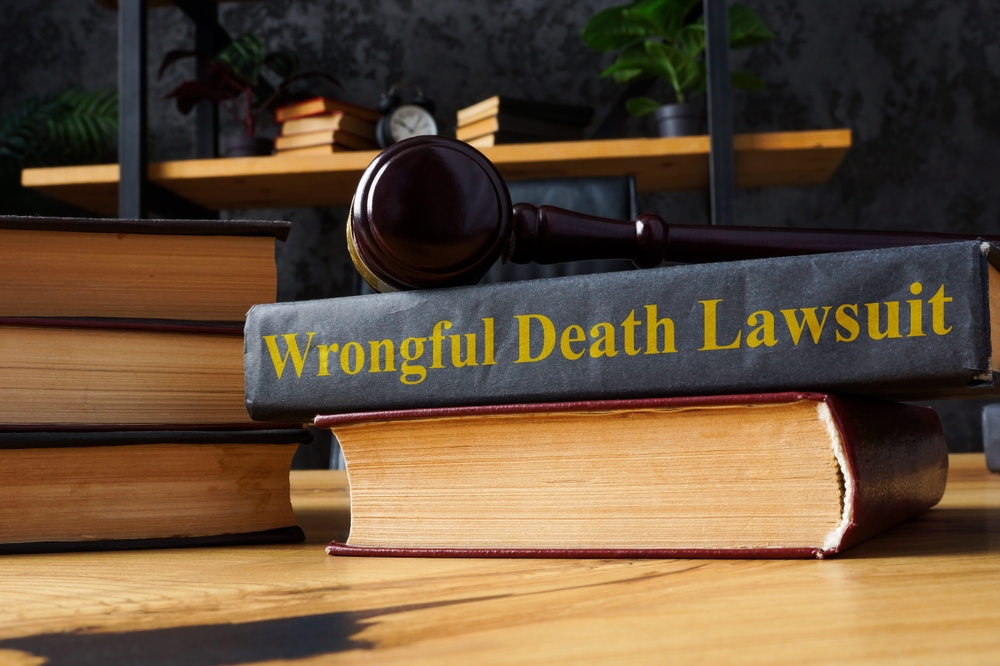How Wrongful Death Lawsuits & Settlements Work
New Orleans Wrongful Death Lawyers
Losing a loved one due to someone else’s negligence or wrongdoing is a devastating experience. In such cases, the family members left behind may be entitled to pursue a wrongful death lawsuit to seek compensation for their loss. While no amount of money can bring back a loved one, holding the responsible parties accountable can help ease the financial burdens and provide a sense of justice.
If you’re considering filing a wrongful death claim, it’s essential to understand how these lawsuits and settlements work. Hiring a qualified personal injury lawyer who specializes in wrongful death cases can be invaluable in navigating the complexities, ensuring your legal rights are protected, and maximizing any potential recovery.
What Is a Wrongful Death Lawsuit? Common Causes of Wrongful Death
A wrongful death lawsuit is a civil legal action filed by certain surviving family members of a person who has died due to the negligent or intentional acts of another party. This type of claim is designed to compensate the deceased’s heirs and beneficiaries for the losses they suffer as a result of the death. Unlike criminal cases, which focus on punishing the wrongdoer, wrongful death lawsuits focus on helping the surviving family members recover monetary damages.
Common Causes of Wrongful Death
Wrongful death claims can arise from a wide range of incidents, including but not limited to:
- Motor vehicle accidents: Car, truck, and motorcycle collisions often lead to fatal injuries when one party drives recklessly or under the influence of drugs or alcohol.
- Medical malpractice: Healthcare professionals who fail to meet the accepted standard of care may cause fatal errors, such as misdiagnosis, surgical mistakes, or medication errors.
- Workplace accidents: Fatal injuries can occur on construction sites, in industrial settings, or other workplaces if employers or third parties fail to maintain safe conditions.
- Defective products: Manufacturers, distributors, or retailers who release unsafe products may be held liable if a product-related defect results in a fatality.
- Premises liability accidents: Property owners who fail to maintain safe conditions may be responsible for a wrongful death, such as a fatal slip-and-fall or a structural collapse.
Who Can File a Wrongful Death Claim in Louisiana?
Every state has its own laws governing who can file a wrongful death claim. In Louisiana, wrongful death claims are governed by Louisiana Civil Code Article 2315.2. The right to file typically follows a specific hierarchy:
- Surviving spouse and children: The deceased’s spouse and children have the first right to file a wrongful death lawsuit.
- Surviving parents: If there is no surviving spouse or children, the deceased’s parents may file the claim.
- Surviving siblings: In cases where there are no surviving spouse, children, or parents, the right to file passes to the deceased’s siblings.
- Surviving grandparents: If none of the above relatives are alive, the claim may be filed by the deceased’s grandparents.
Tip: If you’re unsure whether you’re eligible to file a wrongful death claim, consult with a personal injury attorney who is well-versed in Louisiana law.
Statute of Limitations for Wrongful Death Claims
In Louisiana, wrongful death claims must generally be filed within one year from the date of the death. This is a relatively short time frame compared to some other states, making it crucial to act promptly. Missing the deadline can result in the court refusing to hear your case, effectively forfeiting your right to pursue compensation.
To ensure compliance with these strict deadlines, it’s essential to speak with a personal injury lawyer as soon as possible. They can help gather evidence, identify liable parties, and ensure all necessary legal documents are filed on time.

How a Personal Injury Attorney Can Help
Navigating a wrongful death claim on your own can be emotionally taxing, time-consuming, and complex. A skilled personal injury attorney experienced in handling wrongful death cases can provide invaluable assistance, including:
- Case evaluation: Determining whether you have a valid wrongful death claim and explaining your legal options.
- Evidence gathering: Collecting crucial evidence—such as medical records, accident reports, and witness statements—that support your claim.
- Negotiations with insurance companies: Insurance adjusters often aim to minimize payouts. Your attorney can negotiate on your behalf to pursue a fair settlement.
- Litigation support: If settlement negotiations fail, a seasoned wrongful death lawyer can represent you in court, present a compelling case to the jury, and advocate for maximum compensation.
Emotional support and guidance: Beyond the legal aspects, attorneys understand that clients are grieving and can offer compassion and support throughout the process.
Types of Damages in a Wrongful Death Lawsuit
In a wrongful death lawsuit, surviving family members may seek different types of damages, including:
- Economic damages:
- Medical expenses related to the deceased’s final injury or illness
- Funeral and burial costs
- Loss of the deceased’s future income and benefits
- Loss of household services the deceased would have provided
- Non-economic damages:
- Emotional pain and suffering
- Loss of companionship, care, and guidance
- Mental anguish caused by the premature death of a loved one
These damages aim to provide financial stability and acknowledge the emotional toll the death has taken. A knowledgeable personal injury lawyer can help calculate and demonstrate the full extent of your losses.
Understanding Wrongful Death Settlements
While some wrongful death claims proceed all the way to trial, many resolve through settlement negotiations. A wrongful death settlement is a mutually agreed-upon amount of compensation that the defendant’s insurance company (or the defendant themselves) pays to the surviving family members in exchange for releasing any future claims related to the incident.
Factors That Influence Settlement Amounts
Several factors can influence the amount of a wrongful death settlement, including:
- The degree of negligence: Clear and compelling evidence of the defendant’s liability generally leads to higher settlement offers.
- Age and health of the deceased: A younger victim with a promising career and good health may justify a larger settlement due to the greater loss of future income and support.
- Financial dependents: If the deceased supported a spouse, children, or other dependents, the financial impact of their death is more significant, potentially increasing settlement values.
- Quality of legal representation: An experienced personal injury attorney skilled in wrongful death negotiations can make a substantial difference in the outcome of settlement discussions.
The Wrongful Death Lawsuit Process
1. Consultation and Case Evaluation
The process typically begins with a consultation with a personal injury attorney who will review the details of your case, assess potential liability, and determine if you have a strong claim.
2. Investigation and Evidence Gathering
Your attorney will gather all relevant evidence, including medical records, accident reports, witness statements, and expert opinions. They may also consult with specialists who can provide insight into the cause of death and the value of future losses.
3. Filing the Wrongful Death Claim
Once the investigation is complete, your attorney will file the wrongful death lawsuit in the appropriate court. This involves drafting and submitting a formal complaint that outlines the allegations and the damages sought.
4. Discovery Phase
During discovery, both sides exchange information and evidence. Depositions, interrogatories, and requests for documents help each side prepare for trial. Your attorney will use this phase to strengthen your claim, gather further evidence, and challenge the defendant’s assertions.
5. Settlement Negotiations
Before going to trial, the parties often attempt to settle. Your lawyer will negotiate with the defendant’s insurance company to reach a fair wrongful death settlement. If both sides agree, the case ends here, and you receive compensation.
6. Trial (If Necessary)
If negotiations fail, the case proceeds to trial. Your attorney will present your case, and a judge or jury will decide liability and the amount of damages awarded. While trials can be lengthy and unpredictable, they can also lead to substantial verdicts that exceed initial settlement offers.

The Importance of Choosing the Right Law Firm
The outcome of a wrongful death claim often depends on the quality of your legal representation. By selecting a dedicated and experienced personal injury lawyer, you increase your chances of obtaining a favorable result. At Ricci Partners, LLC, our team understands the emotional and financial burdens you face and works tirelessly to secure the compensation you deserve.
Why Choose Ricci Partners, LLC?
- Proven track record: We have successfully handled complex wrongful death cases.
- Local expertise: We are familiar with Louisiana’s wrongful death statutes and case law.
- Personalized attention: We treat each client with compassion, respect, and understanding.
- Comprehensive resources: From expert witnesses to investigators, we have the resources to build a compelling case.
Take the Next Step
If you believe you have grounds for a wrongful death claim, don’t wait. The law imposes strict deadlines, and the sooner you seek legal advice, the better your chances of building a strong case. Contact our personal injury attorneys at Ricci Partners, LLC today for a compassionate, no-obligation consultation.
